QuestionMy 16 yr old cat recently developed a URI from a foster cat I've been caring for. He's got other problems, along with chemo for a mast cell tumor which so far has seemed to work. I understand his immune system is probably not too good because of this. My vet did put him on antibiotics right off due to this, and I understand it mostly just needs to run it's course. The worry I'm having is suddenly his rear legs don't seem to work very well, if at all. He has moderate arthritis (mostly in the front legs). He can walk a few steps (wobbly) but then needs to lie down for a bit. This has only happened since he caught the URI. I found something on the web that said the Feline Calivirus can cause pain in the joints, especially in that of the rear legs, but only refers to kittens as potential victims of this symptom. Have you seen this happen in adult/senior cats as well? Thank you so much in advance!!
AnswerTo be honest with you I have never seen that happen, but Calicivirus is not very common these days. I would think that just having a respiratory infection at 16 with a weakened immune system would knock the wind right out of you- no pun intended.
He might be having issues not only with his lungs but his heart. Heart problems will cause a deficit in the circulation heading to the rear legs and can cause this weakness.
If he does indeed have Calicivirus then I would venture to say that it is the cause of this issue- and age isn't a factor in the joint pain that it can cause.
Here is an article on the Feline Respiratory complex:
http://www.peteducation.com/article.cfm?c=1+2134&aid=210
and some more:
Symptoms
Calicivirus affects the upper respiratory system, the eyes, the musculoskeletal system, and the gastrointestinal tract. Common symptoms include the following:
* Acute, painful lameness due to tenderness in the joints (arthritis) or muscles (myalgia)
* Fever
* Mild loss of appetite
* Pneumonia, often accompanied by labored, difficult breathing
* Ulcerations (pus-filled sores) on the tongue, palate, lips, or tip of the nose
* Ulcers around the claws, on the bottom of the feet and between the toes
* Upper respiratory infection with eye and nose discharge, (usually with little sneezing)
Calicivirus infection usually develops suddenly. Most infected cats appear healthy and alert; they may have ulcers and no other symptoms (i.e., no fever or pain). Some cats may have mild secondary bacterial infections that are similar to those associated with FHV.
So if he does have calicivirus for sure, than it is most likely the culprit here. As it says, all you can do is keep him warm and comfortable and not let him get all clogged up. His prior vaccinations should help him fight this off also.
I hope he recovers quickly. Please let me know how he does.

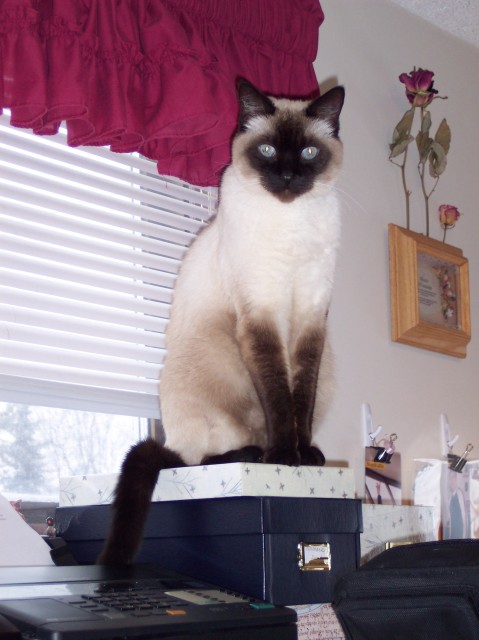 UPDATE: 13 Year old Siamese - not eating
QuestionQUESTION: During his annual check-up 2 months a
UPDATE: 13 Year old Siamese - not eating
QuestionQUESTION: During his annual check-up 2 months a
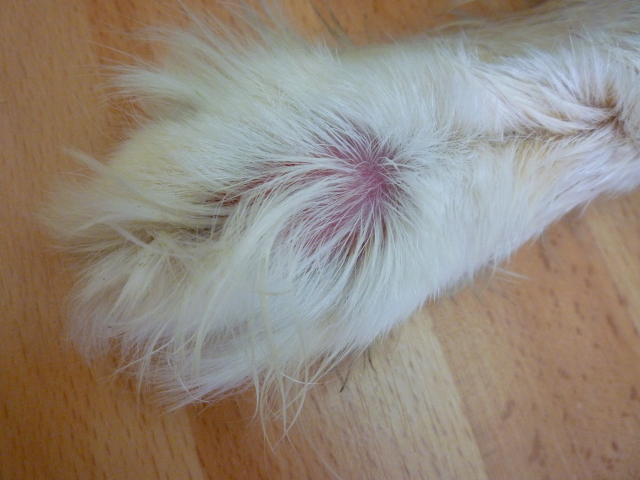 Red irritated foot
QuestionIrritated foot
QUESTION: For the past we
Red irritated foot
QuestionIrritated foot
QUESTION: For the past we
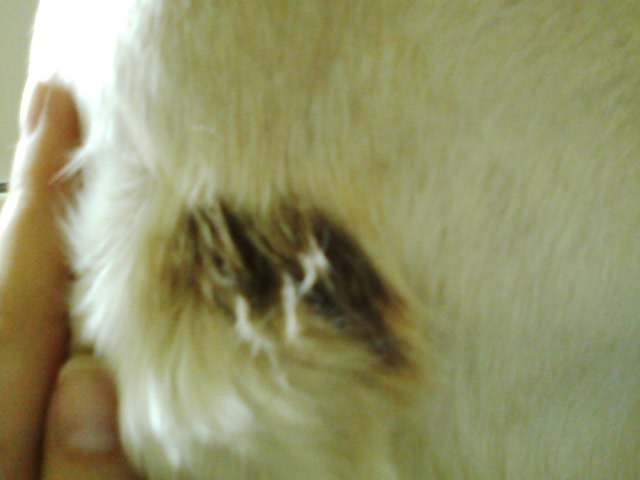 Sore on my dogs face??
QuestionThe Sore
My Dog- Grace
QUESTION:
Sore on my dogs face??
QuestionThe Sore
My Dog- Grace
QUESTION:
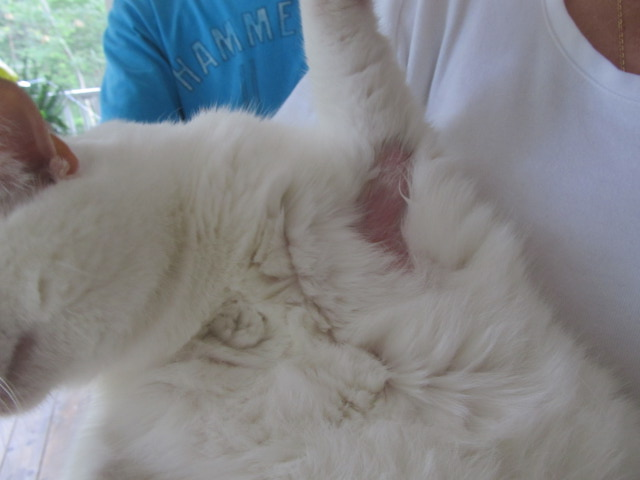 cat skin problem
Question
Clawdia
Hi, Thank you for answering my
cat skin problem
Question
Clawdia
Hi, Thank you for answering my
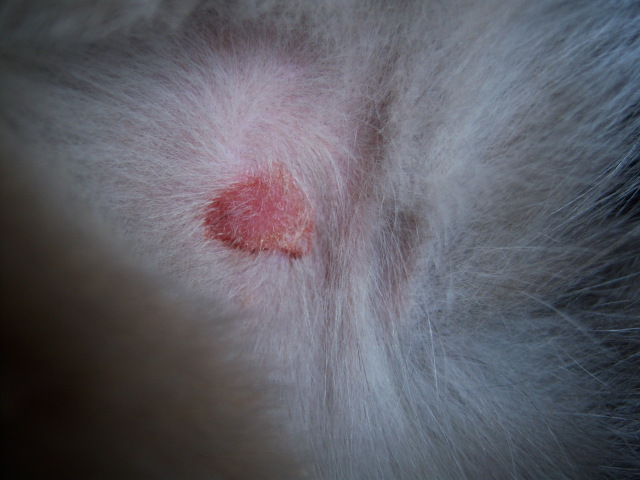 Skin (allergy) issues
Question
Licking sore
Tao my cat is about 9 years old,
Skin (allergy) issues
Question
Licking sore
Tao my cat is about 9 years old,